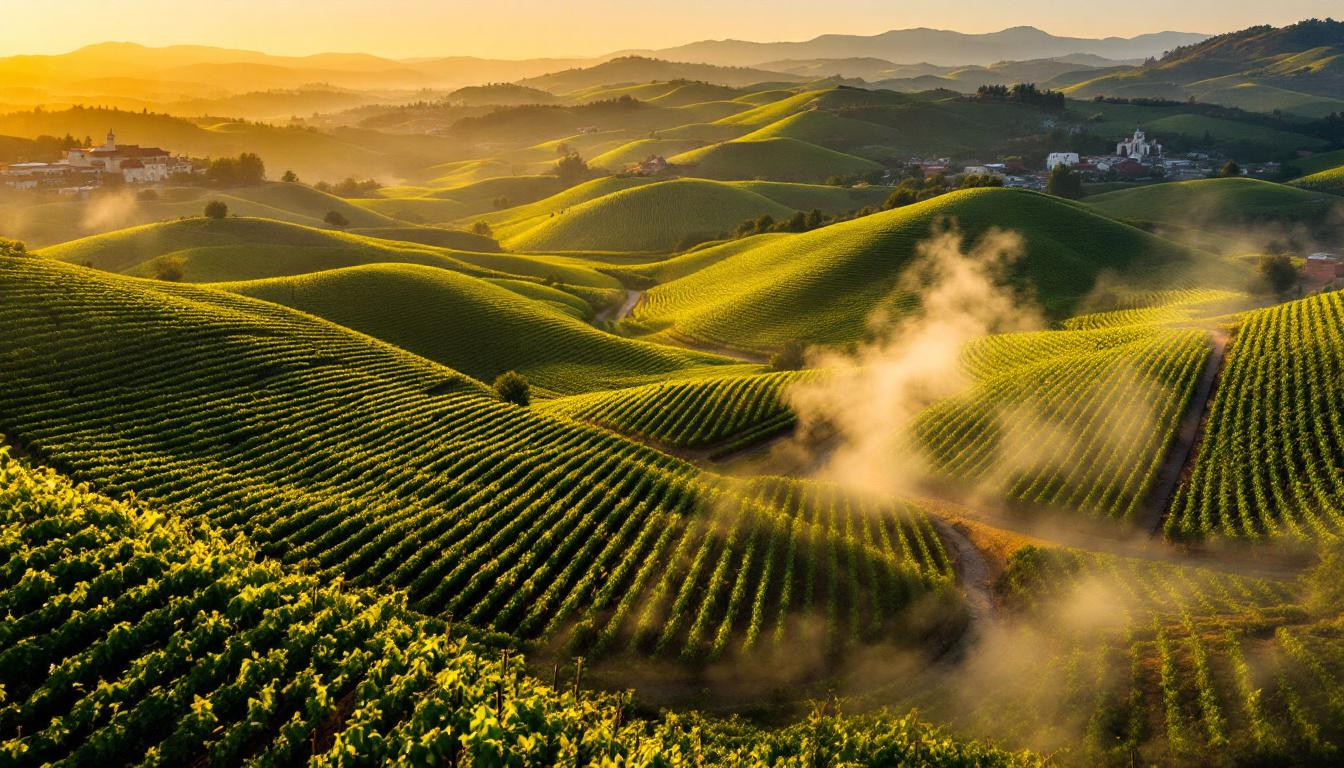Most travelers rush past Paso Robles on Highway 101, never realizing this tiny Central Coast gem harbors more wineries than some entire wine regions. With just 30,800 residents scattered across rolling vineyard hills, this intimate California town somehow manages to house over 200 wineries plus therapeutic hot springs that locals have quietly enjoyed for generations.
What makes this discovery even more remarkable is the whispered consensus among wine insiders. “Paso” – as locals affectionately call their hometown – consistently delivers superior experiences to its famous northern neighbors, but at prices that won’t drain your vacation fund.
The secret lies in Paso’s unique positioning as California’s most authentic wine country experience, where family-owned boutique wineries outnumber corporate tasting rooms and natural hot springs provide the perfect post-tasting relaxation that Napa simply cannot match.
The intimate scale that creates wine country magic
A walkable downtown where everyone knows your story
Unlike sprawling Napa Valley with its 140,000+ metro population, Paso Robles maintains an authentic small-town intimacy where winery owners personally pour tastings and remember your preferences. The entire downtown core spans just six blocks, creating spontaneous encounters with local artisans and fellow travelers seeking authentic American experiences away from commercialized tourism.
Boutique wineries packed into surprising density
This tiny footprint somehow accommodates more active wineries per square mile than most California wine regions. Family operations like Bodega de Edgar and Daou Vineyards offer intimate tastings where you’ll often meet the actual winemaker, not a hired hospitality worker reading scripted notes about terroir.
Unique characteristics that defy wine country expectations
The only wine region combining therapeutic hot springs
While Napa tourists fight traffic between tastings, Paso Robles visitors discover natural mineral hot springs integrated into their wine country experience. Several local establishments offer packages combining morning vineyard tours with afternoon soaking sessions, creating a uniquely Californian wellness tourism model that larger wine regions cannot replicate.
Terroir advantages from dramatic temperature swings
Paso’s Mediterranean climate with significant daily temperature variations creates ideal conditions for both Rhône varietals and Bordeaux-style blends. This geological advantage, combined with limestone-rich soils, produces wines that consistently surprise sommeliers expecting typical California fruit-forward profiles.
Local secrets only residents share freely
Pre-Prohibition winemaking heritage still alive
Unlike reconstructed wine regions, Paso Robles maintains continuous winemaking tradition dating to 1797 when Mission San Miguel Arcangel first planted grapes. York Mountain Winery, operating since the 1880s, offers tastings in original cellars where you can literally taste California’s wine heritage in settings that preserve authentic American craftsmanship.
Sustainable practices protecting community character
Local vintners actively maintain SIP Certified sustainable practices while resisting the large-scale development pressuring other wine regions. This community-wide commitment preserves the intimate atmosphere that makes every tasting feel like a personal invitation rather than a commercial transaction.
The authentic experience tiny places provide
Cost advantages without compromising quality
While Napa tastings average $50-100+ per person, Paso Robles maintains accessible pricing with many premium tastings under $30. Accommodation costs run approximately 30% lower than Napa Valley, allowing wine enthusiasts to extend stays and explore more wineries without budget constraints.
Harvest season accessibility and personal connections
During peak harvest months of July and August, Paso’s smaller scale allows visitors genuine participation opportunities. Many wineries welcome guests for harvest activities, creating authentic cultural exchanges that mirror the intimate community connections found in America’s most authentic regional destinations.
Planning your authentic Paso Robles discovery
When do local conditions create the best experiences?
Spring through fall offers ideal weather for both wine tasting and hot springs soaking, with harvest season providing the most authentic cultural immersion. Local festivals celebrate winemaking traditions without the overwhelming crowds that plague larger wine regions.
How do you access this insider wine country?
Paso Robles sits perfectly positioned on Highway 101, approximately three hours from both Los Angeles and San Francisco. This accessibility, combined with walkable downtown accommodations, eliminates the designated driver complications that complicate Napa Valley exploration.
What makes the experience authentically different?
Beyond lower costs and smaller crowds, Paso Robles offers genuine cultural immersion where winemaking families share personal stories, local restaurants feature estate-grown ingredients, and the therapeutic hot springs provide wellness experiences unavailable in commercialized wine regions.
Paso Robles proves that California’s most authentic wine country experiences still exist for travelers willing to explore beyond famous names. This tiny town’s combination of boutique wineries, therapeutic hot springs, and genuine community hospitality creates memories that expensive, crowded alternatives simply cannot match.
The locals might not advertise their secret paradise, but they’ll warmly welcome respectful visitors who appreciate authentic wine culture over Instagram-worthy luxury. Sometimes the best discoveries are the ones hiding in plain sight.
